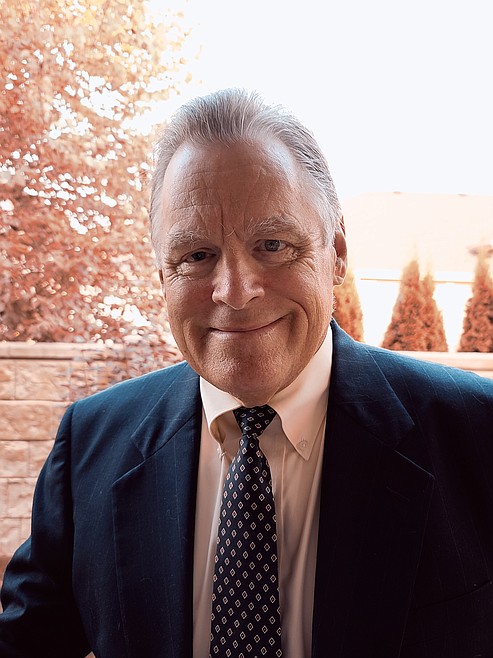OPINION: Try putting ‘science’ to these politics
It doesn’t take a college professor to realize that former President Trump was in a heap of trouble politically after the mid-term elections.
Trump’s endorsed candidates took a beating last November, blowing the Republican Party’s chance of gaining control of the Senate and the GOP managed to win just a slim majority in the House. Trump was widely blamed for those losses and his announcement for the presidency was something that only late-night comics could appreciate.
Kerry Hunter, a political science professor at the College of Idaho, was among those who thought the former president was done politically. Then came the indictment from New York, and a more recent one in Florida, and suddenly “The Donald” is back — holding rallies, raising millIons of dollars and firmly establishing him as the frontrunner for the GOP nomination.
“Right now, I have a hard time seeing any of the other candidates defeating him in the primaries,” Hunter told me. “I’d be surprised if all the votes for the other candidates will add up to what Trump gets in the Republican primary.”
Hunter has been teaching for 35 years, so he offers a pretty good educated guess here. But two other professors — Markie McBrayer at the University of Idaho and Jacklyn Kettler at Boise State University — have a different perspective. They agree that Trump has a decisive edge, but say that it’s too early to declare him as the winner.
McBrayer and Kettler make a good point. At this time in 2015, Jeb Bush appeared to be the presumptive Republican nominee, and we know what happened to him. Then back in the ‘70s, there was this unheard of peanut farmer, Jimmy Carter, who became a household name in 1976.
With Trump, says McBrayer, “His strategy is similar to 2016. His rhetoric is the same and he has grass-roots appeal, so he hasn’t changed much at all. But the party around him has changed.”
And, despite his lofty poll numbers, there is no shortage of Republicans who want to move on from Trump. It remains to be seen if it is enough to deny him the nomination.
“Something worth watching is what political elites within the party are doing,” McBrayer said. “If political elites within the GOP can rally behind a single candidate, say (Gov. Ron) DeSantis for instance, then DeSantis would have a decent chance of winning.”
Time will tell if indictments against Trump, now or in the future, will have an impact on the race. It has been a plus for him so far, but Kettler says the judicial drama paves the way for attacks from Trump opponents.
“I think there is concern about whether Trump brings the strongest challenge to Biden,” she said.
The general election is another game entirely. The stars are pointing to a Biden-Trump rematch, which few people seem to want to see. Then there is a possibility of Liz Cheney jumping into the race, for the main purpose of keeping Trump out of the White House.
“If I were a Democrat — and I am neither a Republican or Democrat — my biggest concern would be whether Biden dies, or has a serious health problem that makes him incapable of serving, Hunter said. “But if he’s still around, there’s nothing like Trump to galvanize his supporters.”
For now, the major focus is on the Republican side. As McBrayer sees it, DeSantis is providing the biggest challenge to Trump at the moment. He has hired experienced pros who are well equipped to get him through the Iowa caucus and early primaries, and the Florida governor has gathered a large number of endorsements from Iowa legislators. She gives former Vice President Mike Pence an outside shot, although his style seems more suited to the Reagan era. For others, getting into double digits will be a struggle — although anything is possible.
One thing for sure is that these professors will have some interesting material to bring when classes resume in the fall semester.
• • •
Chuck Malloy, a longtime Idaho journalist and Silver Valley native, is a columnist with Idaho Politics Weekly. He may be reached at ctmalloy@outlook.com.

